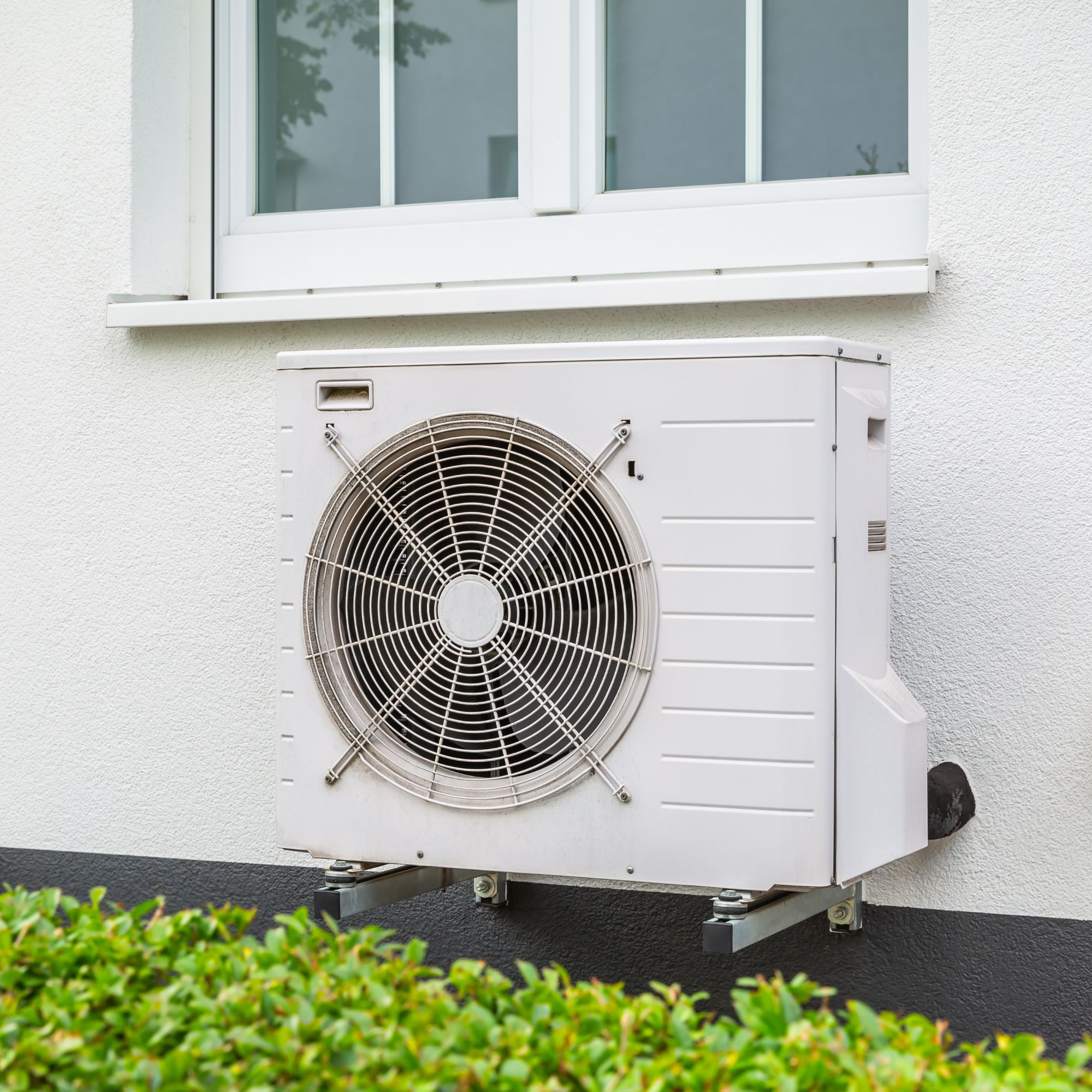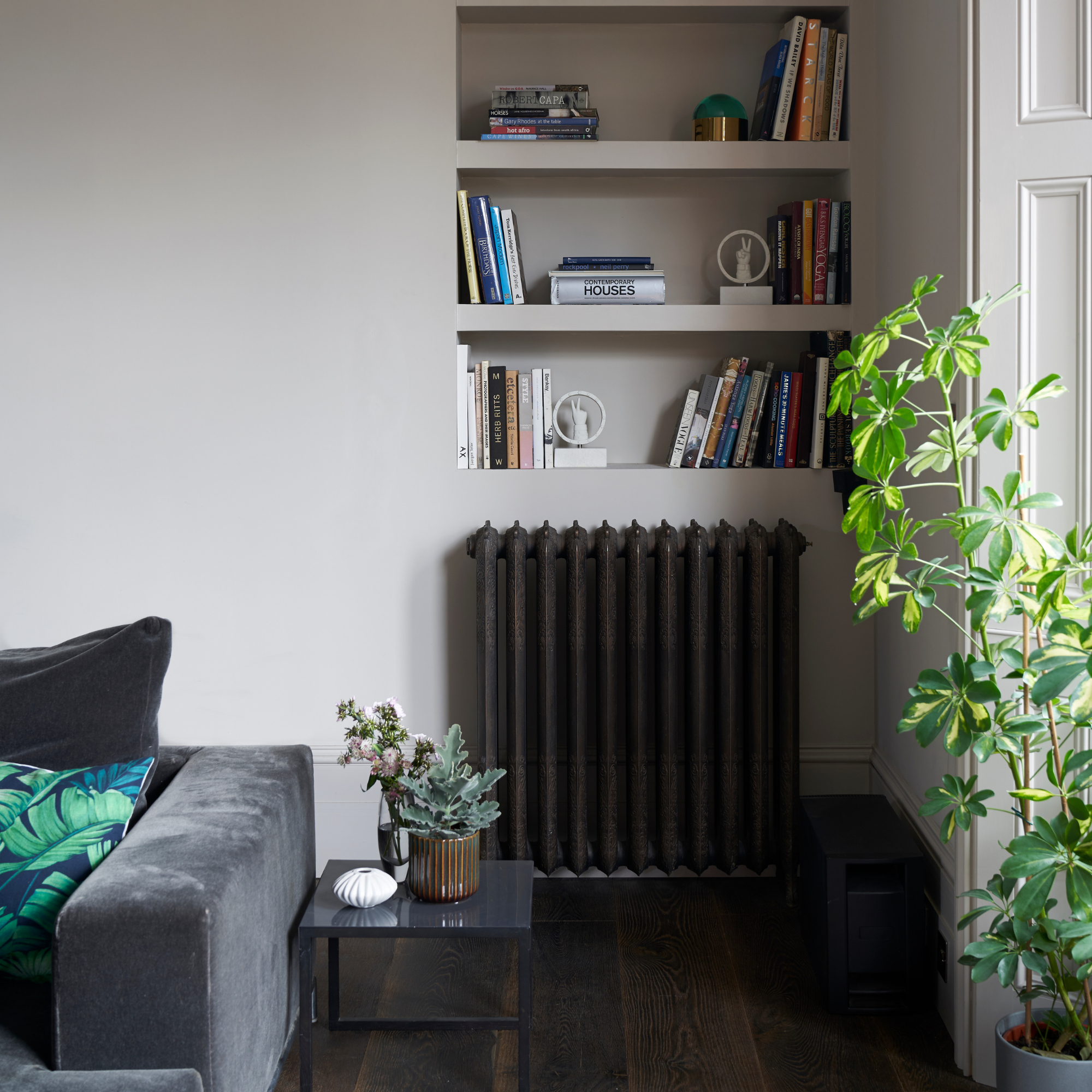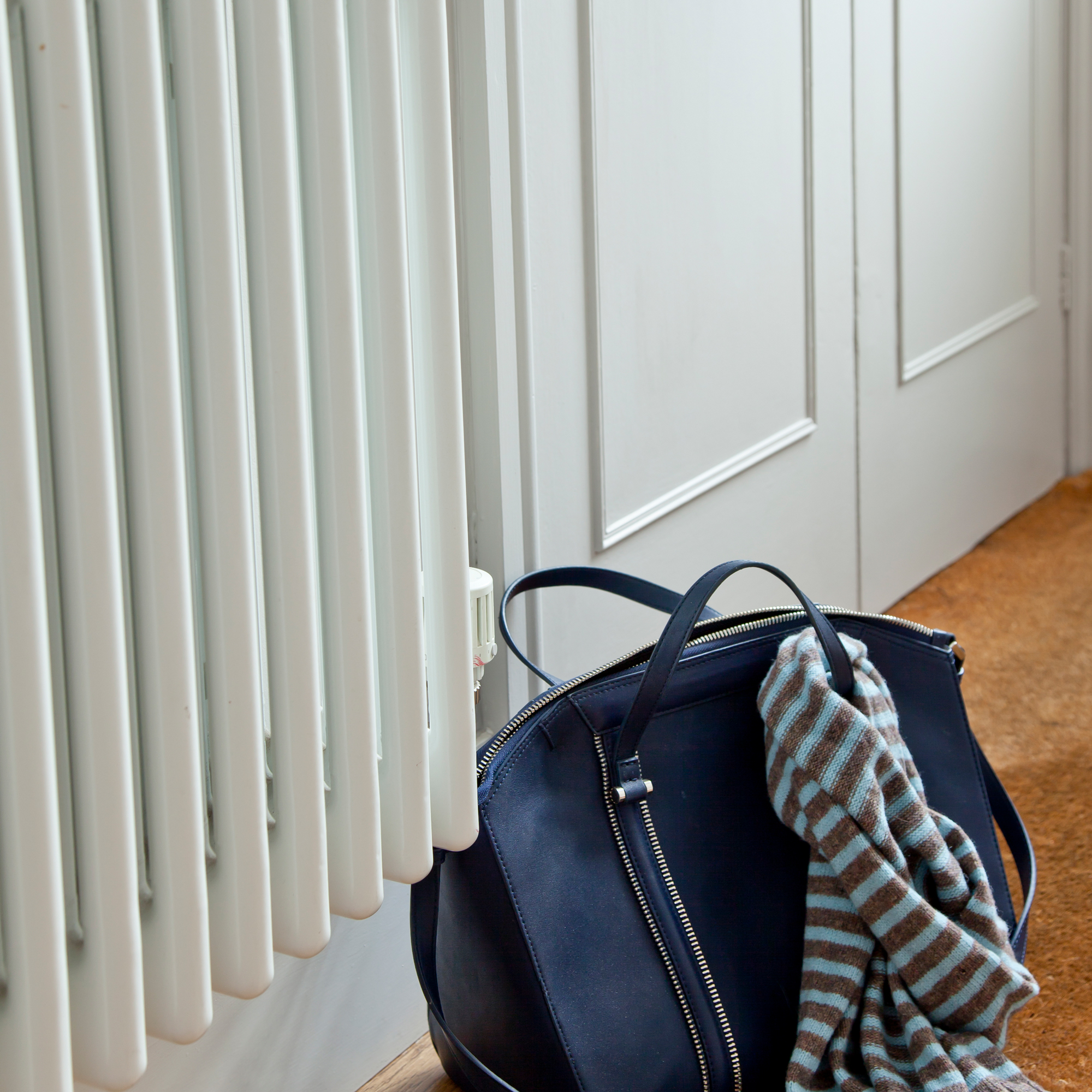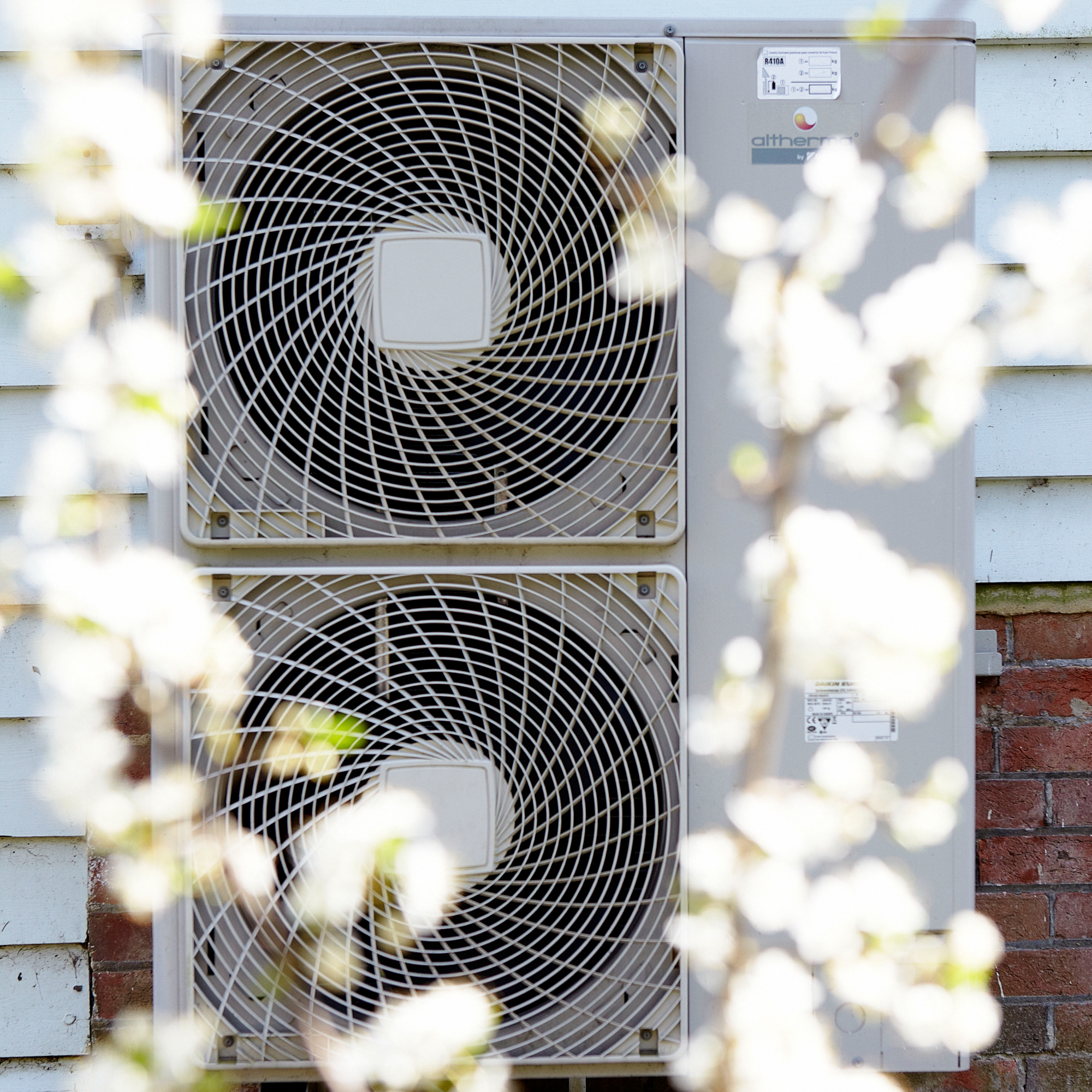How to service a heat pump - key components the engineer will check and how you can help to move the process along
Find out what's involved with servicing a heat pump, how much it costs, and what maintenance you can do yourself

Lauren Bradbury

Heat pumps are becoming increasingly popular, with many homeowners opting for this eco-friendly, efficient heating system. But like anything else, they need a little maintenance to work their magic. So, you should know how to service a heat pump.
When deciding whether a heat pump was worth it, you probably encountered all kinds of information - like whether you should turn it off at night and the potential problems with heat pumps. However, many people fail to realise that heat pumps do come with a lot of rules and regulations - and properly maintaining it is key.
But as Hamid Salimi, Residential Property Manager at Daikin UK, explains, ‘A heat pump won’t need any more maintenance than your boiler. Your heat pump should be serviced every year, just as you might expect with a boiler. This will ensure it’s running efficiently, and it will help to extend its life.’ So, this is how to service a heat pump.
How to service an air source heat pump

When it comes down to it, air-source heat pumps are regarded as cheaper, more practical, and easier to install than ground-source heat pumps. Because of this, they are the most common type of heat pump in the UK.
With air-source heat pumps, there are no components that need routine replacement, but you do need regular debris cleaning plus annual checks to ensure that the pumps are working and the system’s pressures are correct.
And as Adam Raw, Co-Founder of Dwellow, explains, ‘In order to keep your manufacturer warranty valid, you'll need to (in most cases) make sure your heat pump is serviced once a year by a trained engineer.’
So, the steps below will typically need to be completed by a professional - but there are a few things that you can do yourself, too.
Sign up to our newsletter for style inspiration, real homes, project and garden advice and shopping know-how
1. Brush the fins
It’s crucial to have clean, working fins on your heat pump. These metal strips aid heat transfer from the air to your home and will ultimately affect the efficiency of your heat pump if not well maintained.
Kaspar Bradshaw of Next Step Heating, explains, ‘The heat exchanger fins at the back of the heat pump need careful cleaning with a brush, particularly if they are below trees.’
This is something that the heat pump engineer will do during the service, but you can also keep an eye on your heat pump throughout the year - and particularly during the colder months of the year.
‘Make sure you clear away any leaves that get caught behind the heat pump or on the grills at the front,’ says Adam. ‘This helps heat pumps to work efficiently, maximising good airflow as this is where the heat is extracted from to heat your home. In winter, make sure you clear away any snow build-up or other debris.’

2. Clean the magnetic filter
Magnetic filters are found in various heating systems in the UK, including traditional gas boilers and heat pumps. Because magnetic filters are extremely important, they also need to be cleaned during a heat pump service.
Kaspar says, ‘The magnetic particle filter needs removing and cleaning out. This captures corroded iron particles, which would otherwise block the heat exchanger. If this is left uncleaned for too long, it can reduce the system flow rate and cause problems with the heat pump compressor as well as all other components.’
Yes, cleaning this magnetic filter can improve your heat pump's efficiency and longevity, but you cannot (and should not) do it yourself. Your heat pump engineer should complete this step.
3. Check the expansion vessels, valves, and settings
Many other smaller components should be checked when servicing a heat pump, which are often not visible or accessible to the average homeowner. Because of this, your engineer should check your heat pump's expansion vessels, valves, and settings.
‘The heating and hot water expansion vessels must be checked to ensure they are at the right pressure,’ explains Kaspar. ‘All safety valves need checking on the heating and hot water system. And all settings need careful checking to make sure the system is still working optimally.’

4. Check levels, filters, and strainers
As heat pumps heat a home, many people don’t realise that heat pumps use refrigerant gas to run effectively and efficiently. In fact, a heat pump wouldn’t work without this refrigerant.
That’s why Steve Alldritt, Technical Director of Energy Efficiency at City Plumbing, adds that a heat pump service should also include checking refrigerant levels.
He says, ‘Filters and strainers should be checked for debris or blockages that can affect the system flow rate. And if glycol (antifreeze) is being used, levels should be checked and topped up as necessary.’
Once again, this is something the engineer should do and isn’t something you should attempt yourself.
How to service a ground source heat pump
If you have a ground source heat pump, it will be serviced in the same way as an air source heat pump. However, there is one non-negotiable that makes servicing a ground source heat pump different from servicing an air source heat pump.
Although glycol isn’t an essential component of an air source heat pump and therefore might not be an included servicing step, glycol is an essential component of a ground source heat pump. So, the collector array (the pipe in the ground) will definitely contain glycol.

This means that this level should be checked and topped during the service to ensure it is in line with the heat pump manufacturer’s specifications.
Kathryn Warren, Associate Director of Ricardo Energy and Environment business unit, owns a ground-source heat pump. She also says her annual service also includes checks for leaks and bacteria.
And while most of the above needs to be completed by an engineer, checking the clearance of your air or ground source heat pump is something you can do, too. Adam says, ‘Remember not to place anything directly in front of the heat pump fan (like an outdoor sofa), as it will restrict the air flow - you want to leave approximately 1.5m of clear space around the pump.’
FAQs
How much does it cost to service a heat pump?
Costs for an air source heat pump are comparable to the costs of a gas boiler service.
‘Services should be conducted annually and cost starts at around £140 including vat,’ says John Gilham, Group Technical Manager at Green Building Renewables. ‘Fewer engineers are specialised in heat pump services. You must ensure your service is conducted by someone who installs and maintains heat pumps.’
Kathryn Warren says that she expects to pay around £250 for the annual service of her ground source heat pump. However, it’s important to note that this price could reach up to £400 depending on where you live.
Can I service my heat pump myself?
You need to enlist the help of a heat pump specialist or engineer to complete a proper heat pump service, as many manufacturers require this to maintain the warranty. However, there are certain steps you can take yourself to keep your heat pump in full working order.
‘If you know what you are doing, it can be very simple to maintain a heat pump,’ adds John Gilham. ‘However, we recommend that you always use a specialist who understands the setup and running of a heat pump.’
‘Simple tasks like cleaning the back of the heat pump can be done by the homeowner,’ adds Kaspar Bradshaw. ‘But servicing the heating and hot water system must be carried out by a competent person, as otherwise a small problem can quickly escalate into a more significant one.’
Can I clean my heat pump myself?
Yes, as long as you have your heat pump serviced by an engineer as well. Cleaning the outside of a heat pump is very simple and is often a case of removing fallen leaves and keeping debris away from the external elements.
Adam Raw also adds, ‘If the unit gets a bit grimy, just use some warm water and a clean soft cloth to wipe down the outside of the heat pump.’
Knowing how to service a heat pump is often reserved for the professionals, but it’s good to know how you can play your part in the efficiency of your heating system, too.

Caramel Quin is an award-winning journalist and professional nerd who tests technology for newspapers, magazines and online. She has written for Ideal Home since 2012. She prides herself on real-world testing and translating geek speak into plain English. Her pet hates are jargon, pointless products and over-complicated instruction manuals.
- Lauren BradburyContent Editor (House Manual)